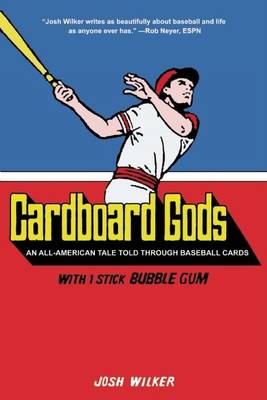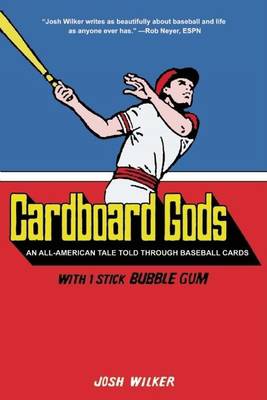
- Afhalen na 1 uur in een winkel met voorraad
- Gratis thuislevering in België vanaf € 30
- Ruim aanbod met 7 miljoen producten
- Afhalen na 1 uur in een winkel met voorraad
- Gratis thuislevering in België vanaf € 30
- Ruim aanbod met 7 miljoen producten
Zoeken
€ 25,45
+ 50 punten
Omschrijving
Cardboard Gods is the memoir of Josh Wilker, a brilliant writer who has marked the stages of his life through the baseball cards he collected as a child. It also captures the experience of growing up obsessed with baseball cards and explores what it means to be a fan of the game. Along the way, as we get to know Josh, his family, and his friends, we also get Josh's classic observations about the central artifacts from his life: the baseball cards themselves. Josh writes about an imagined correspondence with his favorite player, Carl Yastrzemski; he uses the magical bubble-blowing powers of journeyman Kurt Bevacqua to shed light on the weakening of the powerful childhood bond with his older brother; he considers the doomed utopian back-to-the-land dreams of his hippie parents against the backdrop of inimitable 1970s baseball figures such as "Designated Pinch Runner" Herb Washington and Mark "The Bird" Fidrych. Cardboard Gods is more than just the story of a man who can't let go of his past, it's proof that -- to paraphrase Jim Bouton -- as children we grow up holding baseball cards but in the end we realize that it's really the other way around.
Specificaties
Betrokkenen
- Auteur(s):
- Uitgeverij:
Inhoud
- Aantal bladzijden:
- 208
- Taal:
- Engels
Eigenschappen
- Productcode (EAN):
- 9781934734162
- Verschijningsdatum:
- 20/04/2010
- Uitvoering:
- Hardcover
- Formaat:
- Genaaid
- Afmetingen:
- 155 mm x 229 mm
- Gewicht:
- 703 g

Alleen bij Standaard Boekhandel
+ 50 punten op je klantenkaart van Standaard Boekhandel
Beoordelingen
We publiceren alleen reviews die voldoen aan de voorwaarden voor reviews. Bekijk onze voorwaarden voor reviews.











